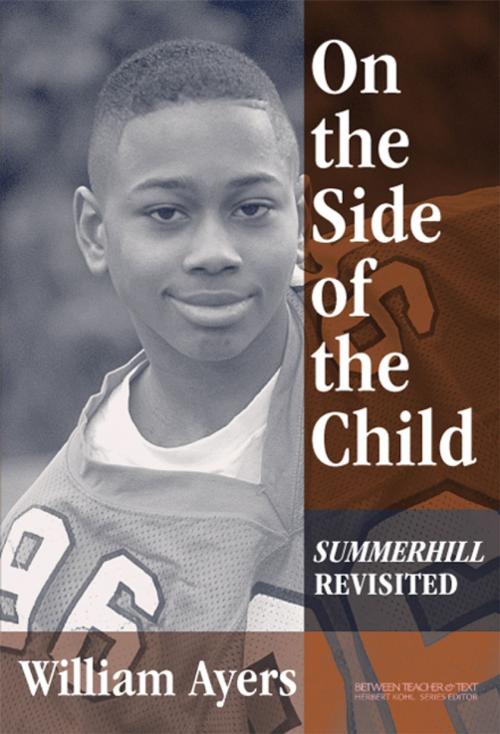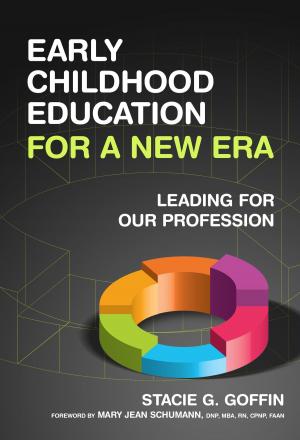On the Side of the Child
Summerhill Revisited
Nonfiction, Reference & Language, Education & Teaching, Special Education, Experimental Methods, Educational Theory, Aims & Objectives, Philosophy & Social Aspects| Author: | William Ayers | ISBN: | 9780807775349 |
| Publisher: | Teachers College Press | Publication: | December 15, 2009 |
| Imprint: | Language: | English |
| Author: | William Ayers |
| ISBN: | 9780807775349 |
| Publisher: | Teachers College Press |
| Publication: | December 15, 2009 |
| Imprint: | |
| Language: | English |
A. S. Neill’s radical approach to child rearing is as controversial today as it was in 1960. Neill’s “code of freedom” emphasized the principles of freedom, love, and positive discipline in the care and education of children. These ideals continue to evoke admiration by many who have found them key to not only raising healthy, happy children but also to stemming the tide of violence in our schools and society. Others dismiss these same principles for being idealistic at best and harmful at worst.
In this wonderful account, Bill Ayers speaks as a parent and an educator who has spent years in the classroom experimenting with Neill’s progressive approach. While Ayers admits to being a long-time fan of Neill’s, he also admits that Neill’s techniques sometimes “seemed more than a little loony.” when they first appeared. It is Ayers’s honest, straightforward approach that makes his treatment of Neill so valuable and relevant to how we treat and raise our children today.
This vital and unique volume is a great read for parents, teachers, and anyone considering alternative visions for raising children and overcoming violence in today’s society. It also features key sections from the original text of Summerhill: A Radical Approach to Child Rearing that Ayers identifies as critical to understanding Neill’s philosophy.
“William Ayers’ dialog with A. S. Neill . . . is particularly important at this time when high-stakes testing and an obsession with stigmatizing children as ADD or Hyperactive is a substitute for treating students as respected citizens of their schools. Neill and Ayers understand the importance of choice, voice, and respect in the lives of adolescents and they honor and celebrate it.”
—From the Series Foreword by Herb Kohl
“Bill Ayers, a creative and insightful educator, begins where A.S. Neill left off by challenging us to think outside the box and push for true freedom and democracy in our schools. This book is a must read, not only for educators but also for professionals and parents who care about children and for whom building a truly humane and just society is paramount.”
—Jane R. Hirschmann, Chair, NYS Parents' Coalition to End High Stakes Testing
A. S. Neill’s radical approach to child rearing is as controversial today as it was in 1960. Neill’s “code of freedom” emphasized the principles of freedom, love, and positive discipline in the care and education of children. These ideals continue to evoke admiration by many who have found them key to not only raising healthy, happy children but also to stemming the tide of violence in our schools and society. Others dismiss these same principles for being idealistic at best and harmful at worst.
In this wonderful account, Bill Ayers speaks as a parent and an educator who has spent years in the classroom experimenting with Neill’s progressive approach. While Ayers admits to being a long-time fan of Neill’s, he also admits that Neill’s techniques sometimes “seemed more than a little loony.” when they first appeared. It is Ayers’s honest, straightforward approach that makes his treatment of Neill so valuable and relevant to how we treat and raise our children today.
This vital and unique volume is a great read for parents, teachers, and anyone considering alternative visions for raising children and overcoming violence in today’s society. It also features key sections from the original text of Summerhill: A Radical Approach to Child Rearing that Ayers identifies as critical to understanding Neill’s philosophy.
“William Ayers’ dialog with A. S. Neill . . . is particularly important at this time when high-stakes testing and an obsession with stigmatizing children as ADD or Hyperactive is a substitute for treating students as respected citizens of their schools. Neill and Ayers understand the importance of choice, voice, and respect in the lives of adolescents and they honor and celebrate it.”
—From the Series Foreword by Herb Kohl
“Bill Ayers, a creative and insightful educator, begins where A.S. Neill left off by challenging us to think outside the box and push for true freedom and democracy in our schools. This book is a must read, not only for educators but also for professionals and parents who care about children and for whom building a truly humane and just society is paramount.”
—Jane R. Hirschmann, Chair, NYS Parents' Coalition to End High Stakes Testing















